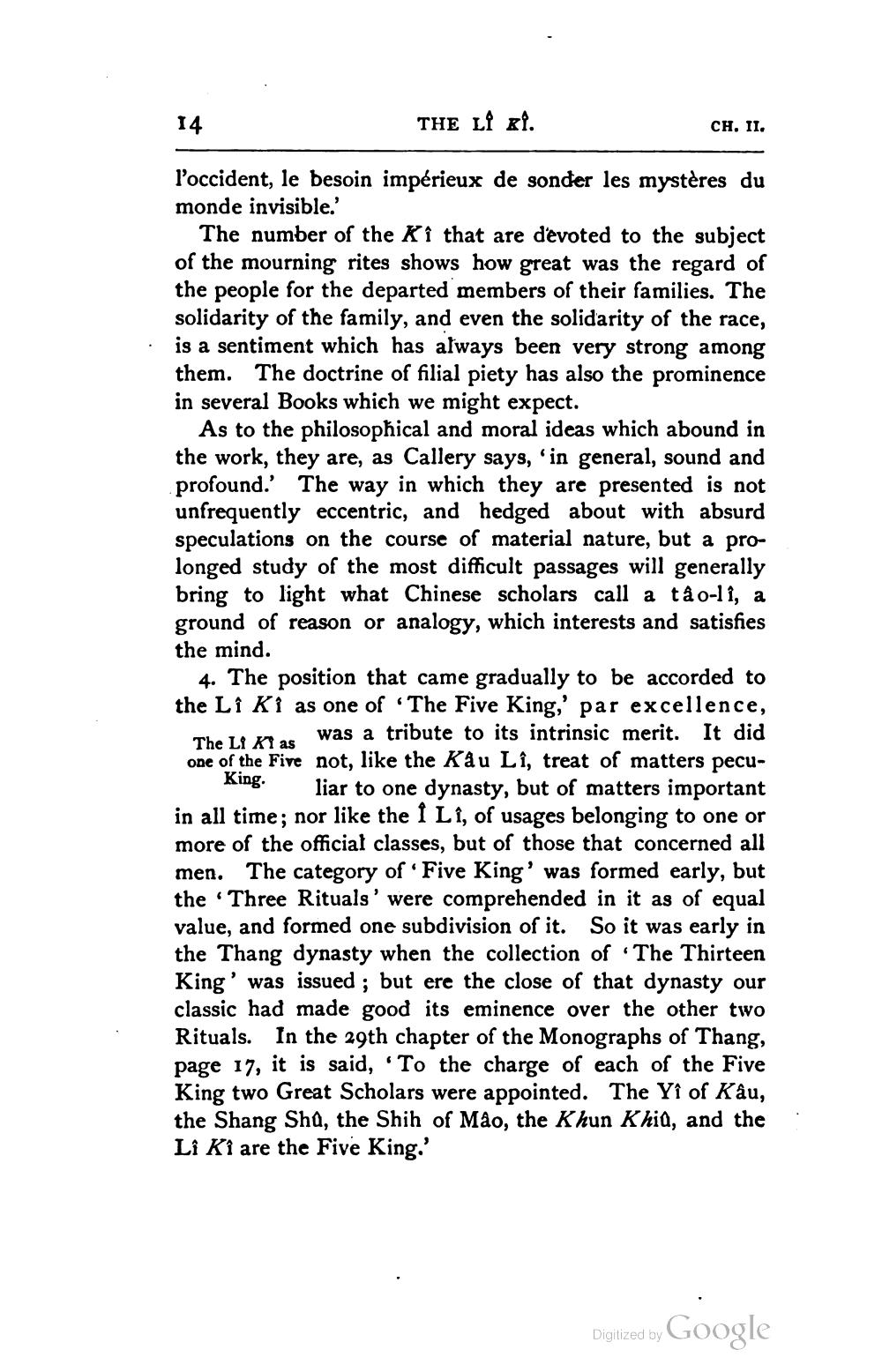________________
14
THE LỄ KÝ.
CH, II.
l'occident, le besoin impérieux de sonder les mystères du monde invisible.'
The number of the Kî that are devoted to the subject of the mourning rites shows how great was the regard of the people for the departed members of their families. The solidarity of the family, and even the solidarity of the race, is a sentiment which has always been very strong among them. The doctrine of filial piety has also the prominence in several Books which we might expect
As to the philosophical and moral ideas which abound in the work, they are, as Callery says, 'in general, sound and profound.' The way in which they are presented is not unfrequently eccentric, and hedged about with absurd speculations on the course of material nature, but a prolonged study of the most difficult passages will generally bring to light what Chinese scholars call a tão-li, a ground of reason or analogy, which interests and satisfies the mind.
4. The position that came gradually to be accorded to the Lî Ki as one of “The Five King,' par excellence,
was a tribute to its intrinsic merit. It did The Li K1 as was one of the Five not, like the Kau Lî, treat of matters pecu
King. liar to one dynasty, but of matters important in all time; nor like the I Lî, of usages belonging to one or more of the official classes, but of those that concerned all men. The category of Five King' was formed early, but the "Three Rituals' were comprehended in it as of equal value, and formed one subdivision of it. So it was early in the Thang dynasty when the collection of The Thirteen King' was issued ; but ere the close of that dynasty our classic had made good its eminence over the other two Rituals. In the 29th chapter of the Monographs of Thang, page 17, it is said, 'To the charge of each of the Five King two Great Scholars were appointed. The Yi of Kâu, the Shang Shu, the Shih of Mao, the Khun Khid, and the Li Ki are the Five King.'
Digitized by Google




